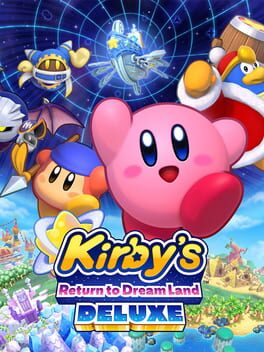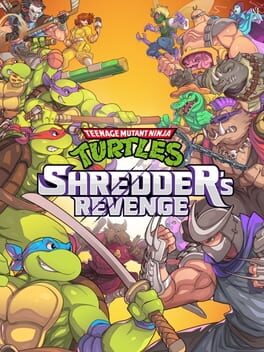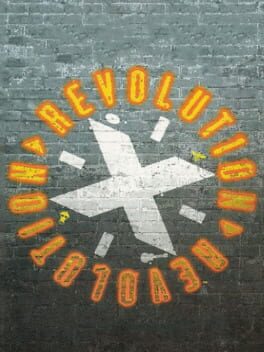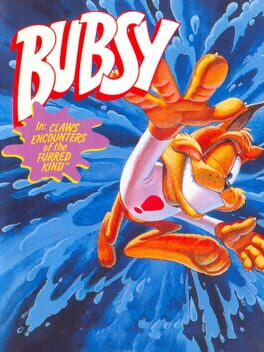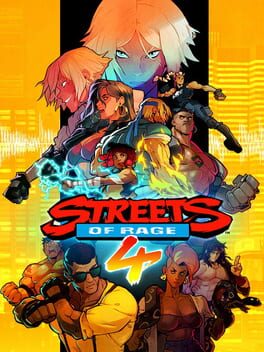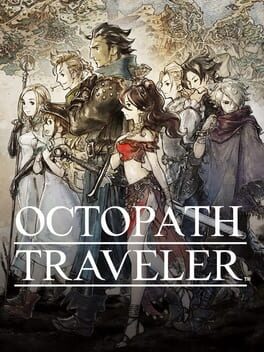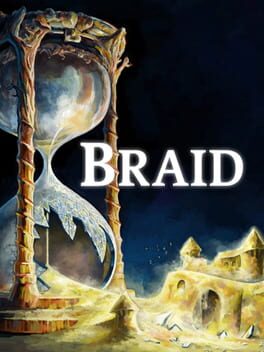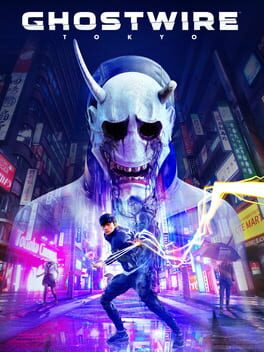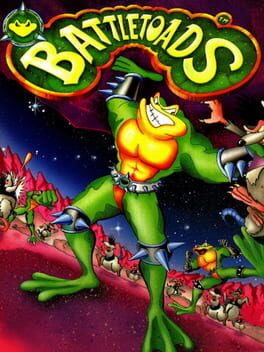Dmg_Inc
2000
Final Fantasy IX is one of those games that has been in my backlog forever now -- I'm talking like two decades. I just never got around to playing it because I was focused on the newer-gen consoles that were releasing in the years that followed its release, and I sadly just never made the time to go back and play it. This was until very recently when I decided to buckle down and jump in, and boy, was I missing out...
Immediately, the game felt comfortably familiar to me as a PSX Final Fantasy title - the visual style, overworld, and HUD/interface all shared a strong semblance with FF VII & VIII. It may just be nostalgia, but there is just something massively charming about this era of FF games, and because of that, I was almost instantly won over. The pre-rendered backgrounds, low-poly sprites, and classic interface all work for me to an incredible degree. It's apparent to me that the limitations of the PSX inspired a level of visual creativity that is sort of lost in modern-era AAA gaming, and I appreciate the hell out of these developers for what they were able to create considering the limitations at the time.
While the game nails the visual creativity, it also, undoubtedly, excels musically. Once again, we have another classic Nobuo Uematsu composed soundtrack, and he delivers once again with some absolutely classic themes. While I feel like this was my least favorite from the PSX era, I do not want that to take away from how great the soundtrack still is. Really, it just speaks volumes about how extraordinary the soundtracks from VII & VIII were. Furthermore, going back to play this after having played FF:XVI without an Uematsu composition really makes me miss his contribution to these games even more.
As usual with Final Fantasy games, the character-writing was top notch. I grew a strong attachment to nearly every party member, and Vivi really stood out as my favorite. In terms of the story - I enjoyed the slow discovery of the plot throughout the game. However, admittedly, toward the end of the game, I struggled to understand the underlying minutiae of the story. Still, the overarching theme of friendship, selflessness, and reasons for being resonated with me.
In terms of the gameplay - combat plays nearly identical to the previous PSX turn-based installments, so it was super easy for me to jump into. The novelty in this title is in the way you obtain abilities by learning new active and passive abilities from different pieces of gear. I could go on and on for a couple of paragraphs about my feelings on the intricacies of this system, but in summary, I mostly enjoyed it. I feel like it made new equipment more exciting, it kept equipment relevant for longer, and made the random encounters more welcoming considering that it is the only way to learn the abilities from the gear. Still, the random encounters can still become intrusive and annoying at times, particularly when you're just trying to actively explore a given room or area.
My final minor gripe is regarding the 'Trance' system, which is essentially the same as 'Limit Breaks' from previous titles -- only, in this game, I felt like they built up much slower than Limit Breaks, and as a result were so incredibly infrequent. Even when equipping the High Tide ability stone, which effectively increases your rate at entering this 'Trance' mode, I still found Trances were a bit too infrequent. As a result, I often would get frustrated when I would enter a 'Trance' in a random encounter shortly before a boss fight, basically eliminating any chance for me to re-enter it again in the encounters where they matter the most. Furthermore -- at least with the equipment that I was able to discover for him -- 'Trance' was the only time where Zidane gained any abilities that felt impactful, and I was left mostly using his basic attack for most turns outside of Trance. Still, despite this criticism, I still enjoyed the turn-based combat overall, and I think the ability systems within this game were my favorite from any of the PSX FF titles.
In conclusion, FFIX closed out the PSX set of FF games with a bang, and it is quite clear why this is rated among the best JRPGs from the fifth-gen. While it didn't really break new ground to completely set itself a part from VII and VIII, it still did everything right that the previous games had and continued the great trend. And as the old adage goes - "if it ain't broke, don't fix it..." I wish it wouldn't have taken me as long as it did to play this game, but I am delighted that I finally did.
Immediately, the game felt comfortably familiar to me as a PSX Final Fantasy title - the visual style, overworld, and HUD/interface all shared a strong semblance with FF VII & VIII. It may just be nostalgia, but there is just something massively charming about this era of FF games, and because of that, I was almost instantly won over. The pre-rendered backgrounds, low-poly sprites, and classic interface all work for me to an incredible degree. It's apparent to me that the limitations of the PSX inspired a level of visual creativity that is sort of lost in modern-era AAA gaming, and I appreciate the hell out of these developers for what they were able to create considering the limitations at the time.
While the game nails the visual creativity, it also, undoubtedly, excels musically. Once again, we have another classic Nobuo Uematsu composed soundtrack, and he delivers once again with some absolutely classic themes. While I feel like this was my least favorite from the PSX era, I do not want that to take away from how great the soundtrack still is. Really, it just speaks volumes about how extraordinary the soundtracks from VII & VIII were. Furthermore, going back to play this after having played FF:XVI without an Uematsu composition really makes me miss his contribution to these games even more.
As usual with Final Fantasy games, the character-writing was top notch. I grew a strong attachment to nearly every party member, and Vivi really stood out as my favorite. In terms of the story - I enjoyed the slow discovery of the plot throughout the game. However, admittedly, toward the end of the game, I struggled to understand the underlying minutiae of the story. Still, the overarching theme of friendship, selflessness, and reasons for being resonated with me.
In terms of the gameplay - combat plays nearly identical to the previous PSX turn-based installments, so it was super easy for me to jump into. The novelty in this title is in the way you obtain abilities by learning new active and passive abilities from different pieces of gear. I could go on and on for a couple of paragraphs about my feelings on the intricacies of this system, but in summary, I mostly enjoyed it. I feel like it made new equipment more exciting, it kept equipment relevant for longer, and made the random encounters more welcoming considering that it is the only way to learn the abilities from the gear. Still, the random encounters can still become intrusive and annoying at times, particularly when you're just trying to actively explore a given room or area.
My final minor gripe is regarding the 'Trance' system, which is essentially the same as 'Limit Breaks' from previous titles -- only, in this game, I felt like they built up much slower than Limit Breaks, and as a result were so incredibly infrequent. Even when equipping the High Tide ability stone, which effectively increases your rate at entering this 'Trance' mode, I still found Trances were a bit too infrequent. As a result, I often would get frustrated when I would enter a 'Trance' in a random encounter shortly before a boss fight, basically eliminating any chance for me to re-enter it again in the encounters where they matter the most. Furthermore -- at least with the equipment that I was able to discover for him -- 'Trance' was the only time where Zidane gained any abilities that felt impactful, and I was left mostly using his basic attack for most turns outside of Trance. Still, despite this criticism, I still enjoyed the turn-based combat overall, and I think the ability systems within this game were my favorite from any of the PSX FF titles.
In conclusion, FFIX closed out the PSX set of FF games with a bang, and it is quite clear why this is rated among the best JRPGs from the fifth-gen. While it didn't really break new ground to completely set itself a part from VII and VIII, it still did everything right that the previous games had and continued the great trend. And as the old adage goes - "if it ain't broke, don't fix it..." I wish it wouldn't have taken me as long as it did to play this game, but I am delighted that I finally did.
My first and only experience with Kirby was back in 1993, with the original Kirby's Dream Land on Game Boy. Dream Land was one of my absolute favorite games on the handheld, but for some inexplicable reason I strayed away from any and all Kirby games in the years that followed. When I saw the release of "Return to Dream Land" on the Switch as a "Deluxe" version, it triggered my nostalgia for the original Game Boy game, and I was intrigued enough to return to Dream Land myself to see if a contemporary Kirby game was still the right kind of platforming adventure for me.
My feelings on the game are a bit torn. While Kirby largely played the way that I remembered back in the 90s, it didn't initially captivate me in the same way; it simply didn't feel as novel as it did as when I was 8-years old. Through the first half of the game, I was having a decent time, but I also felt like the platforming mechanics were a bit too simple and somewhat uninspired. Frankly, it just felt too easy. By no means did I ever feel like it was a bad game, but I wasn't necessarily having a ton of fun either. It was at this point I almost walked away from the game with the mindset that I must have outgrown Kirby, and I simply just wasn't the target audience any longer. This was until I hit the second-half of the game.
In the second-half, I really felt like the challenge started to ramp up nicely. It never got overly difficult, but it hit a nice sweet spot where I felt challenged by the levels and even more so by the boss fights. I was starting to feel like the power-ups I was absorbing had a real impact on my gameplay, whereas in the first-half they felt like they were ostensibly just for show. Sure, they all had their unique functions, but I never really felt like I cared what power-up I obtained; but in the second-half, that all changed. I had become quite attached to a few power-ups (my favorites being the mecha and ninja enhancements), and I really felt like I was at a strong disadvantage without them. My feelings toward the game really started to shift at this stage, and by the time I finished the story, I was pleased overall, and I was certainly happy I stuck with it.
After the credits rolled, I thought my journey with the game was finished. While I had played around with a few of the challenge levels, I wasn't compelled to complete those, nor was I interested in any of the array of other side content that the game offers -- this was until I glanced over the newly unlocked "Magolor Epilogue". Intrigued, I booted up this mode to see what it was about. Little did I know I was delving into, subjectively, the most enjoyable part of the game.
While I was torn between the two halves of the main game, Magolor Epilogue won me over almost immediately. This wasn't just side content; it was essentially a full-fledged game in itself -- albeit on the short side. While it shares some characteristics with Kirby, it plays almost completely different. I found that I enjoyed the platforming sections in this mode a lot more than I had really had on any stage in Kirby's adventure. Additionally, the unlockable and upgradeable abilities had me hooked and kept the game feeling fresh the whole way through. Furthermore, the boss fights felt like a greater challenge than many of the boss fights in the main game, and I really felt like my progressive mastery over Magolor's wide assortment of abilities was having a profound impact in my ability to defeat them. By the time I had finished the epilogue, it really had me thirsting for more, and it left me feeling as though I would love to see Magolor get his own full-release game, because I was definitely captivated throughout the few hours that this mode offered.
In short, the second-half of Kirby, and the inclusion of Magolor Epilogue really solidified this as a super solid game for me, and I'm thrilled that I'm able to still find a lot of joy in Kirby, just as I did 30-years ago. I certainly look forward to venturing into other Kirby titles in the near future.
My feelings on the game are a bit torn. While Kirby largely played the way that I remembered back in the 90s, it didn't initially captivate me in the same way; it simply didn't feel as novel as it did as when I was 8-years old. Through the first half of the game, I was having a decent time, but I also felt like the platforming mechanics were a bit too simple and somewhat uninspired. Frankly, it just felt too easy. By no means did I ever feel like it was a bad game, but I wasn't necessarily having a ton of fun either. It was at this point I almost walked away from the game with the mindset that I must have outgrown Kirby, and I simply just wasn't the target audience any longer. This was until I hit the second-half of the game.
In the second-half, I really felt like the challenge started to ramp up nicely. It never got overly difficult, but it hit a nice sweet spot where I felt challenged by the levels and even more so by the boss fights. I was starting to feel like the power-ups I was absorbing had a real impact on my gameplay, whereas in the first-half they felt like they were ostensibly just for show. Sure, they all had their unique functions, but I never really felt like I cared what power-up I obtained; but in the second-half, that all changed. I had become quite attached to a few power-ups (my favorites being the mecha and ninja enhancements), and I really felt like I was at a strong disadvantage without them. My feelings toward the game really started to shift at this stage, and by the time I finished the story, I was pleased overall, and I was certainly happy I stuck with it.
After the credits rolled, I thought my journey with the game was finished. While I had played around with a few of the challenge levels, I wasn't compelled to complete those, nor was I interested in any of the array of other side content that the game offers -- this was until I glanced over the newly unlocked "Magolor Epilogue". Intrigued, I booted up this mode to see what it was about. Little did I know I was delving into, subjectively, the most enjoyable part of the game.
While I was torn between the two halves of the main game, Magolor Epilogue won me over almost immediately. This wasn't just side content; it was essentially a full-fledged game in itself -- albeit on the short side. While it shares some characteristics with Kirby, it plays almost completely different. I found that I enjoyed the platforming sections in this mode a lot more than I had really had on any stage in Kirby's adventure. Additionally, the unlockable and upgradeable abilities had me hooked and kept the game feeling fresh the whole way through. Furthermore, the boss fights felt like a greater challenge than many of the boss fights in the main game, and I really felt like my progressive mastery over Magolor's wide assortment of abilities was having a profound impact in my ability to defeat them. By the time I had finished the epilogue, it really had me thirsting for more, and it left me feeling as though I would love to see Magolor get his own full-release game, because I was definitely captivated throughout the few hours that this mode offered.
In short, the second-half of Kirby, and the inclusion of Magolor Epilogue really solidified this as a super solid game for me, and I'm thrilled that I'm able to still find a lot of joy in Kirby, just as I did 30-years ago. I certainly look forward to venturing into other Kirby titles in the near future.
Over 20 years later, Metal Gear Solid 2: Sons of Liberty is still a fantastic game with a boat load of bombast and personality. However, at times, it still suffers from the same dated, clunky controls that I found within its predecessor -- albeit with some slight improvements due to the addition of the first-person view mode. Additionally, I quite enjoy Raiden as the primary protagonist in this game. I know many have severely criticized him as a game character, but the juxtaposition between him and Snake strikes a really nice balance in my opinion.
I had forgotten a majority of the plot since I last played this game in 2002, so replaying it again, it was almost as if I was experiencing it again for the first time. For the first 3/4 of the game, the plot really had a tight hold on me with its deep mystery and neat twists. However, in the final act of the game, I really felt like Kojima went completely off the rails. During the absurdly long exposition dump at the very end of the game, my brain nearly melted with all of the revelations that the game was trying to explicate. However, there is just something simply endearing about Kojima's absurdity, and I can't quite put my finger on it. As a result, despite being mostly in a state of confusion while trying to wrap my head around the metacommentary, I was still quite entertained -- almost in a comedic sense. Moreover, the idiosyncratic cautionary narrative regarding our foray into the digital age remains astoundingly relevant today in modern-day society, even more than it did back when the game released at the turn of the century.
Ultimately, even though I think I ended the game with more questions about the plot than I had at the beginning, I still found Sons of Liberty to stand the test of time, and I'm really happy I decided to replay through it again.
I had forgotten a majority of the plot since I last played this game in 2002, so replaying it again, it was almost as if I was experiencing it again for the first time. For the first 3/4 of the game, the plot really had a tight hold on me with its deep mystery and neat twists. However, in the final act of the game, I really felt like Kojima went completely off the rails. During the absurdly long exposition dump at the very end of the game, my brain nearly melted with all of the revelations that the game was trying to explicate. However, there is just something simply endearing about Kojima's absurdity, and I can't quite put my finger on it. As a result, despite being mostly in a state of confusion while trying to wrap my head around the metacommentary, I was still quite entertained -- almost in a comedic sense. Moreover, the idiosyncratic cautionary narrative regarding our foray into the digital age remains astoundingly relevant today in modern-day society, even more than it did back when the game released at the turn of the century.
Ultimately, even though I think I ended the game with more questions about the plot than I had at the beginning, I still found Sons of Liberty to stand the test of time, and I'm really happy I decided to replay through it again.
Shredder's Revenge is an amazing tribute to the SNES and Genesis beat 'em up titles, as well as the 90s cartoon. The 16-bit sprites, stage backgrounds, and cut-scenes are visually gorgeous, and the gameplay is just timeless fun. It made me feel like a kid all over again, transporting me back to when I was sitting on my mom's living room floor, playing the hell out of Hyperstone Heist on my Genesis.
2015
What can I say about Bloodborne that hasn't already been said? I went into this game with nearly 10 years of hype, and without question, my experience lived up to every facet of it. When I wasn't playing Bloodborne, I was thinking about it. When I would fall asleep, I would dream about it. I found myself perpetually enthralled with the amazing level design, the incredible world-building, and the viscerally satisfying combat. And now, having come to the end of my first playthrough, I am proudly hopping on the Bloodborne train and will be heralding this as one of the best games that was ever created.
1994
How the hell this cruddy game ever came into my possession as a child, I will never know. I can say for damn sure I never asked for it. I'm pretty confident my mom found it in some sort of Blockbuster discount bin and figured it would make a good cheap gift at the time. Revolution X was one of those many weird, obscure licensed games that would get churned out back in the 90s, so it's not really all that unique; but it is still a bit of an oddity, and I can't help but wonder why in the hell did this game ever even get created, and how in the world did it become associated with Aerosmith?? I know I could probably find out with a simple Google search, but I'd rather it remain a comedic mystery for me. Other than the chuckle I get from thinking about Revolution X, I can't help but feel disappointed that I spent any time amount of time playing this when there are so many heralded Genesis titles that I missed out on at the time.
I have no idea why I enjoyed Bubsy as much as I did when I was a kid. For a decent span of time, my cousins and I would load this in every day after school, and we had fun with it. However, even at 9-years old, I could tell that something about Bubsy was off -- I could sense it was on a tier well below other platformer titles that I had played, like Mario, Sonic, and Rocket Knight Adventures. I also remember getting quite frustrated with dying in one hit, and the fall damage. But regardless, I still found some level of excitement in playing Bubsy, and I can't quite put my finger on it. When I go back to watch gameplay footage as an adult, I find myself sort of flabbergasted that I liked it at all, because I can clearly see it for the massively flawed game that it is, and there isn't a single thing about Bubsy that I find appealing at this stage. Still, I have to give it some sort of credit for keeping a naïve 9-year old me entertained for a month or two at the time.
2020
Being a huge Streets of Rage fan in the 90s, I was super-excited to play the 4th entry into the series, and I was not disappointed in the slightest. The vibrant hand drawn anime art-style that they went with was a great choice. Everything looks absolutely stunning, from the character models to the environments -- I was enthralled by the visuals throughout my entire playthrough. Also, It was so incredible to see most of the classic SoR cast, along with all of the classic enemy-types get this visual upgrade, with many cool new enemy-types as well.
Another high expectation I had was for the music, and it did not disappoint. The bar was set high because of how amazing the music of Streets of Rage 2 was, but they really knocked this soundtrack out of the park as well. It was so awesome to hear that Yuzo Koshiro -- the original SoR composer -- came back to do a few tracks for the game. I would have loved to have heard a whole new soundtrack from him, but Olivier Deriviere -- who took over as the primary artist featured on this soundtrack -- did a wonderful job, and I still loved nearly every single track. I'm actually listening to the soundtrack as I'm typing this review, and I'm adoring the hell out of it! It really sounds like Deriviere paid a ton of homage and respect to Koshiro's style, which I can severely appreciate.
The game plays just like I remember Streets of Rage playing on the Genesis, and that is not a bad thing. I wouldn't say that the game did anything mechanically innovative to move the genre forward -- it really is just your classic 90s-era BEU with a few extra move sets -- but it feels timeless to play, and it's hard to not have a good time.
I guess my only complaint is that the game is a bit short. I'm not expecting some 40-hour banger from my BEU titles, but I was able to get through the entire game on normal mode in roughly 3-4 hours. At the end, I felt like I would have appreciated at least a few more stages. But still, I had a great time in those few hours, and these games are always fun to play back through on higher difficulties with different characters, or with friends, so there's plenty of reason to go back for more. If you're a Streets of Rage fan, you owe it to yourself to play this entry. As long as you're not looking for something revolutionary, I can't see how you could be disappointed.
Another high expectation I had was for the music, and it did not disappoint. The bar was set high because of how amazing the music of Streets of Rage 2 was, but they really knocked this soundtrack out of the park as well. It was so awesome to hear that Yuzo Koshiro -- the original SoR composer -- came back to do a few tracks for the game. I would have loved to have heard a whole new soundtrack from him, but Olivier Deriviere -- who took over as the primary artist featured on this soundtrack -- did a wonderful job, and I still loved nearly every single track. I'm actually listening to the soundtrack as I'm typing this review, and I'm adoring the hell out of it! It really sounds like Deriviere paid a ton of homage and respect to Koshiro's style, which I can severely appreciate.
The game plays just like I remember Streets of Rage playing on the Genesis, and that is not a bad thing. I wouldn't say that the game did anything mechanically innovative to move the genre forward -- it really is just your classic 90s-era BEU with a few extra move sets -- but it feels timeless to play, and it's hard to not have a good time.
I guess my only complaint is that the game is a bit short. I'm not expecting some 40-hour banger from my BEU titles, but I was able to get through the entire game on normal mode in roughly 3-4 hours. At the end, I felt like I would have appreciated at least a few more stages. But still, I had a great time in those few hours, and these games are always fun to play back through on higher difficulties with different characters, or with friends, so there's plenty of reason to go back for more. If you're a Streets of Rage fan, you owe it to yourself to play this entry. As long as you're not looking for something revolutionary, I can't see how you could be disappointed.
2018
A simply incredible 2D JRPG, start to finish. Not only is the art-style absolutely gorgeous, but the musical score composed by Yasunori Nishiki is one of the best gaming soundtracks I've ever had the pleasure of listening to, rivaling even that of Nobuo Uematsu's Final Fantasy scores, which I didn't think was possible. The soundtrack is so good that I could have played through the game simply off the back of the music alone. Beyond that, turn-based RPGs are always welcome gameplay in my book, and I loved getting back into that style of RPG after not having played one in a long time. While the turn-based combat feels mostly familiar, the inclusion of the "Boost" system was a lot of fun, especially when you're able to combo multiple boosts for some devastating damage.
My only complaint about the game is that I only found 2 - 3 of the 8 separate storylines to be truly interesting, with Primrose's story being the best of the bunch in my opinion -- the rest varied from just OK, to rather banal. Still, there was nothing inherently wrong with any of the storylines, and it wasn't enough to keep me from absolutely adoring nearly every moment I spent with this game.
My only complaint about the game is that I only found 2 - 3 of the 8 separate storylines to be truly interesting, with Primrose's story being the best of the bunch in my opinion -- the rest varied from just OK, to rather banal. Still, there was nothing inherently wrong with any of the storylines, and it wasn't enough to keep me from absolutely adoring nearly every moment I spent with this game.
1998
The first Metal Gear Solid is such a revolutionary game that it is hard not to severely appreciate it despite certain aspects of the game not having aged particularly well, especially in the way the game controls. There wasn't a single boss encounter that didn't frustrate me to some degree because of how awkward it feels to do anything with accuracy or precision in this game. The stealth mechanics also show their age with how limited they are, especially when compared to MGS2:SOL, or even the likes of Splinter Cell, both of which would release just a few years later. Overall, despite those criticisms, I still found the gameplay enjoyable.
In terms of the characters and story, both are absurdly campy at times. However, it's important to remember that 1998 was a point in time where complex storytelling -- especially cinematic-esque storytelling -- was a very new concept in video games. Both Metal Gear Solid and Final Fantasy VII truly paved the way in proving that video games could be taken seriously as a legitimate medium for artistic storytelling; and for that, some of the corniness simply has to be forgiven. Besides, there is a lot of charm to the campiness anyway. Even though I found myself cracking up at some of the dialogue, I still enjoyed the hell out of it, and I fell in love all over again with the cast of wacky characters. Moreover, Snake still comes off as one of the coolest damn protagonists in any video game, just as he did a quarter of a century ago.
While I wouldn't call Metal Gear Solid a timeless masterpiece due to the aspects of the gameplay not having aged well, it's still such a profoundly trailblazing title that it will always be secured as an all-time classic.
In terms of the characters and story, both are absurdly campy at times. However, it's important to remember that 1998 was a point in time where complex storytelling -- especially cinematic-esque storytelling -- was a very new concept in video games. Both Metal Gear Solid and Final Fantasy VII truly paved the way in proving that video games could be taken seriously as a legitimate medium for artistic storytelling; and for that, some of the corniness simply has to be forgiven. Besides, there is a lot of charm to the campiness anyway. Even though I found myself cracking up at some of the dialogue, I still enjoyed the hell out of it, and I fell in love all over again with the cast of wacky characters. Moreover, Snake still comes off as one of the coolest damn protagonists in any video game, just as he did a quarter of a century ago.
While I wouldn't call Metal Gear Solid a timeless masterpiece due to the aspects of the gameplay not having aged well, it's still such a profoundly trailblazing title that it will always be secured as an all-time classic.
2008
I went back to play Braid recently after having some fond memories of playing it 15-years ago (as hard as I find that to believe). I still loved the pastel art-style, and the soundtrack is amazing. I got a super cozy vibe when I was playing. However, in terms of the actual gameplay, the puzzle-solving was a lot more frustrating than I remember. I did still enjoy the time reversal system and the way you use it to solve puzzles.
When it's clicking, it can be a very rewarding experience. However, there were many puzzle pieces that I simply just gave up on out of sheer frustration, which ultimately ended up leading to me walking away from the game. I couldn't figure out if the issue was that I was just incompetent (very likely) or if I was supposed to come back with an ability-upgrade to finish them later, and I couldn't recall from my previous venture in 2009. I also feel like the game didn't do a good job of making that clear either.
Ultimately, I feel like with the strides that indie games have made over the last decade, the gameplay in Braid just didn't age as well as I had hoped. Still, from an artistic perspective, it still shines.
When it's clicking, it can be a very rewarding experience. However, there were many puzzle pieces that I simply just gave up on out of sheer frustration, which ultimately ended up leading to me walking away from the game. I couldn't figure out if the issue was that I was just incompetent (very likely) or if I was supposed to come back with an ability-upgrade to finish them later, and I couldn't recall from my previous venture in 2009. I also feel like the game didn't do a good job of making that clear either.
Ultimately, I feel like with the strides that indie games have made over the last decade, the gameplay in Braid just didn't age as well as I had hoped. Still, from an artistic perspective, it still shines.
2022
Ghostwire Tokyo is a visual delight with a cool concept and a somewhat different twist on the open-world action genre.
The gameplay loop is pretty fun, though I felt that it did get a bit repetitive after a dozen or so hours of playing. The campaign is fairly short, and it's loaded with your typical run-of-the-mill open-world side-adventures, ala Assassin's Creed, Spider-Man, Arkham City etc. However, I found getting around Tokyo in Ghostwire to not be nearly as enjoyable as in those other games, making the side-adventures a tad less desirable to complete.
Visuals are great, especially the presentation of Tokyo itself. Moreover, the monster (visitor) designs are absolutely top notch. There are some truly terrifying creatures in this game.
Their horrific portrayal, along with the creepy abandoned city creates an atmosphere that is quite chilling, which was a tad more on the horror side of the genre than I had expected going in.
Regarding the story: I found it very difficult to follow, and thus with the exception of what was happening on the surface level, I had a really tough time understanding what the heck was going on, which made it challenging for me to connect to the characters -- this simply could just boil down to me being too smooth-brained to properly connect the dots.
Overall, Ghostwire Tokyo is a pretty solid open-world game that I would definitely recommend trying, especially if you can find it on the cheap. I did enjoy most of my time playing.
However, despite the campaign being fairly short with some oddly rushed pacing toward the last couple of chapters, I was still ready for the game to be over with when the ending arrived.
The gameplay loop is pretty fun, though I felt that it did get a bit repetitive after a dozen or so hours of playing. The campaign is fairly short, and it's loaded with your typical run-of-the-mill open-world side-adventures, ala Assassin's Creed, Spider-Man, Arkham City etc. However, I found getting around Tokyo in Ghostwire to not be nearly as enjoyable as in those other games, making the side-adventures a tad less desirable to complete.
Visuals are great, especially the presentation of Tokyo itself. Moreover, the monster (visitor) designs are absolutely top notch. There are some truly terrifying creatures in this game.
Their horrific portrayal, along with the creepy abandoned city creates an atmosphere that is quite chilling, which was a tad more on the horror side of the genre than I had expected going in.
Regarding the story: I found it very difficult to follow, and thus with the exception of what was happening on the surface level, I had a really tough time understanding what the heck was going on, which made it challenging for me to connect to the characters -- this simply could just boil down to me being too smooth-brained to properly connect the dots.
Overall, Ghostwire Tokyo is a pretty solid open-world game that I would definitely recommend trying, especially if you can find it on the cheap. I did enjoy most of my time playing.
However, despite the campaign being fairly short with some oddly rushed pacing toward the last couple of chapters, I was still ready for the game to be over with when the ending arrived.
1991
2019
An absolute masterpiece and the staple of what a remake should be. RE:2 Remake is nothing short of phenomenal in the way it plays, in the stunning visuals, and in the intense, terrifying atmosphere that it manifests. It honors the greatness of original game while improving upon it in almost every single aspect.

